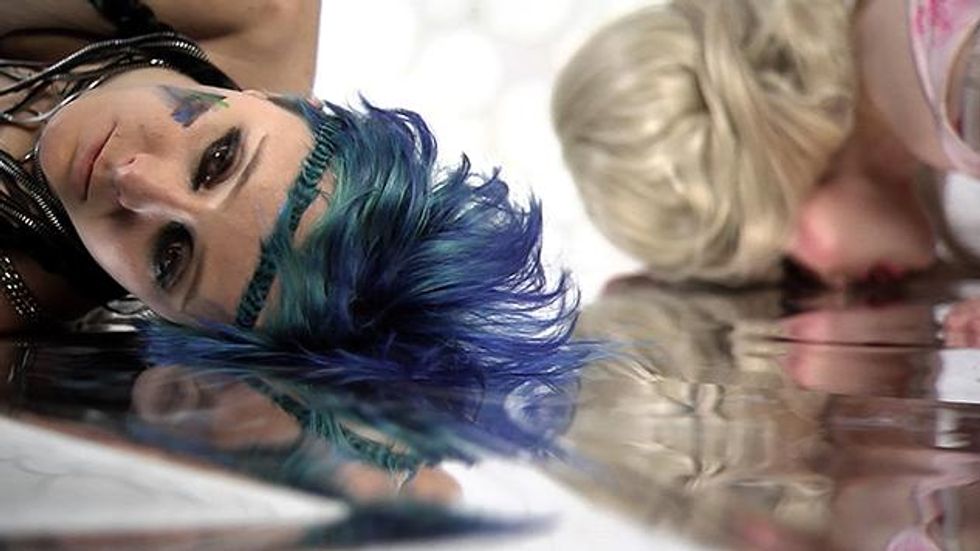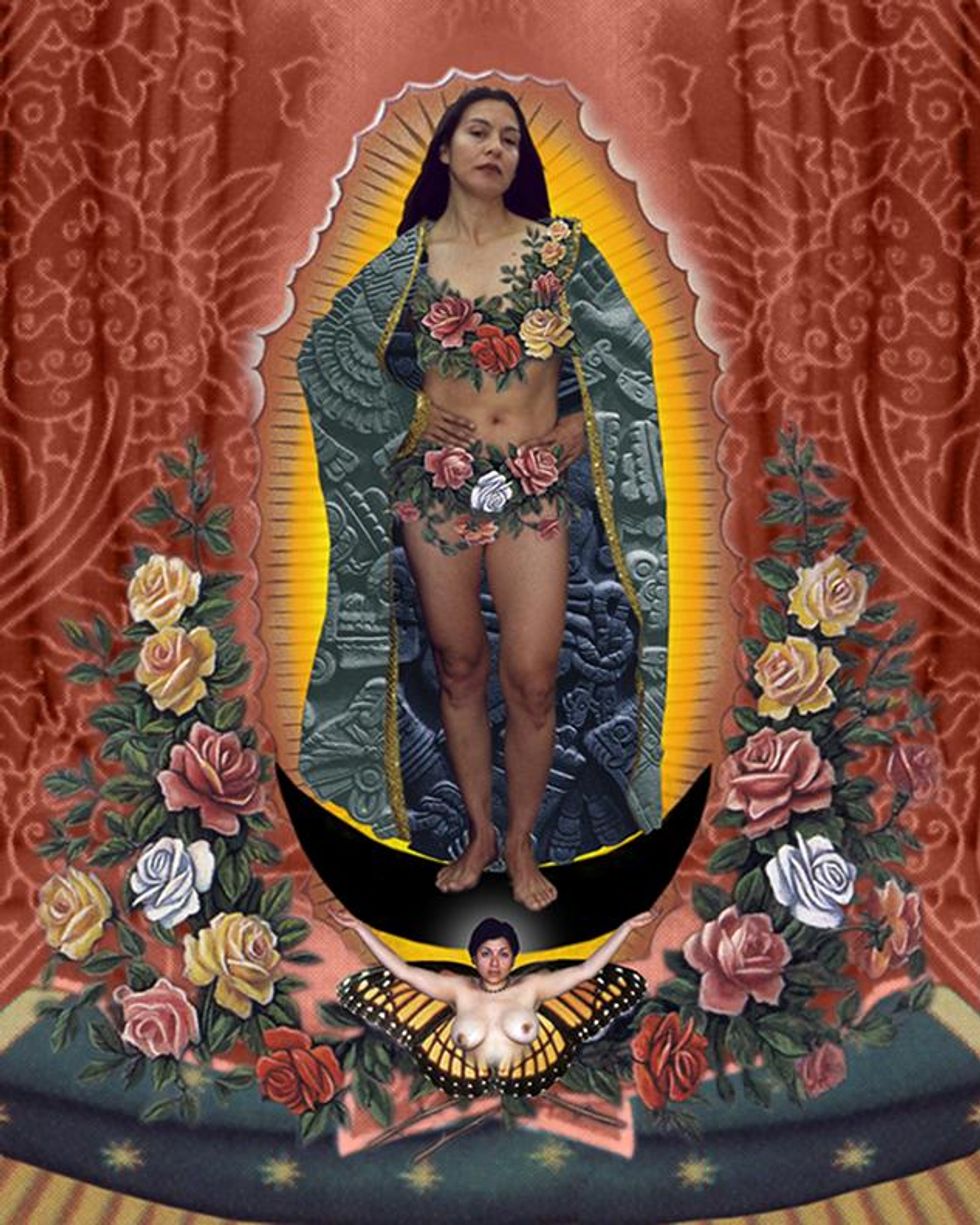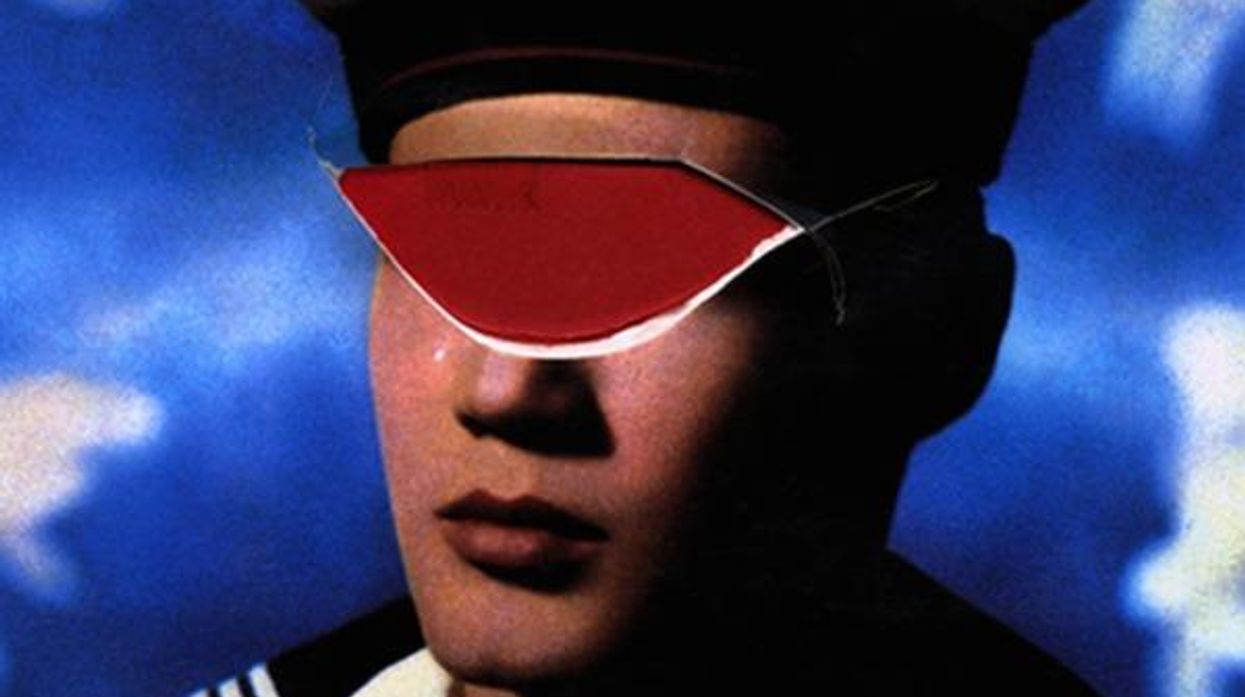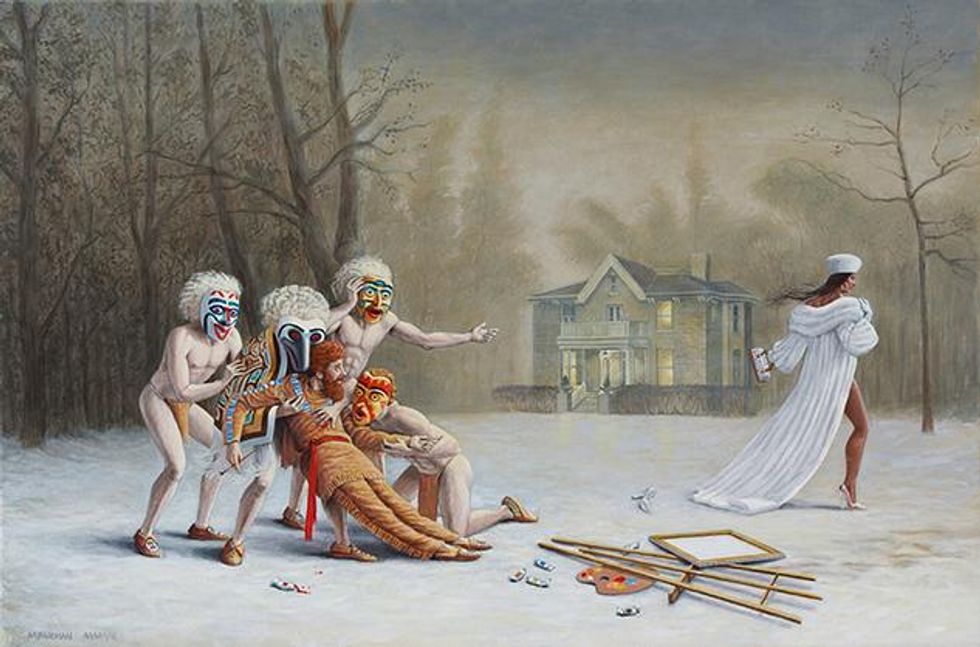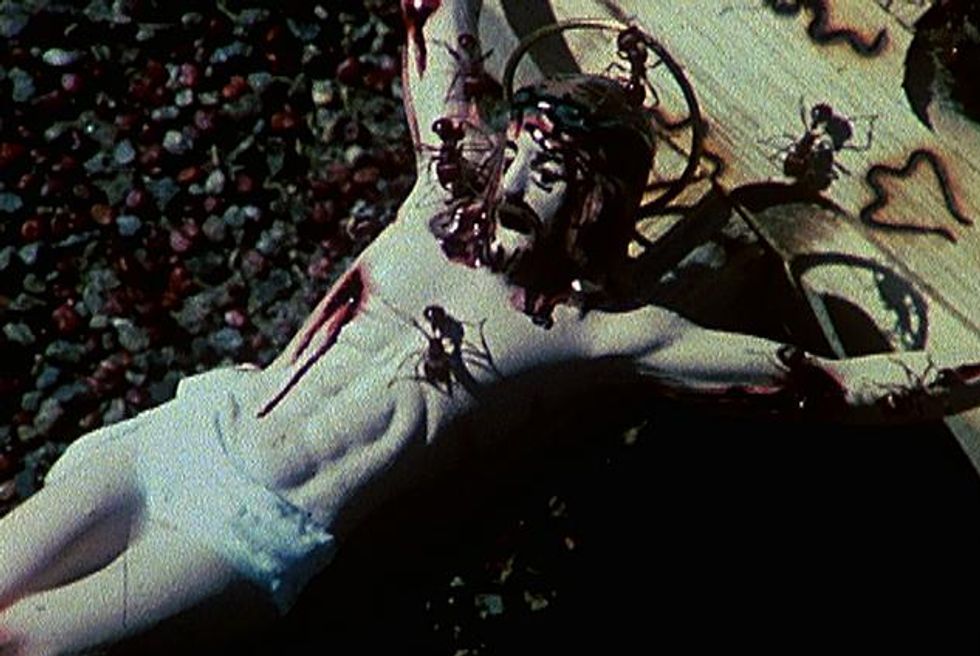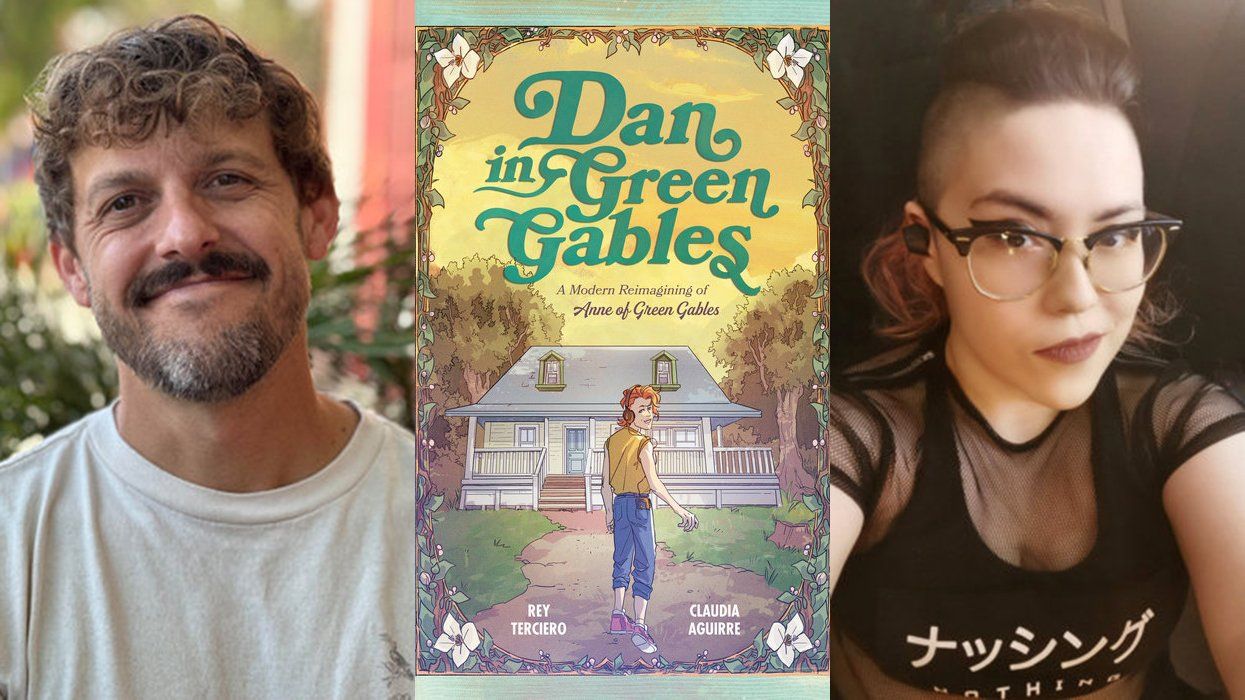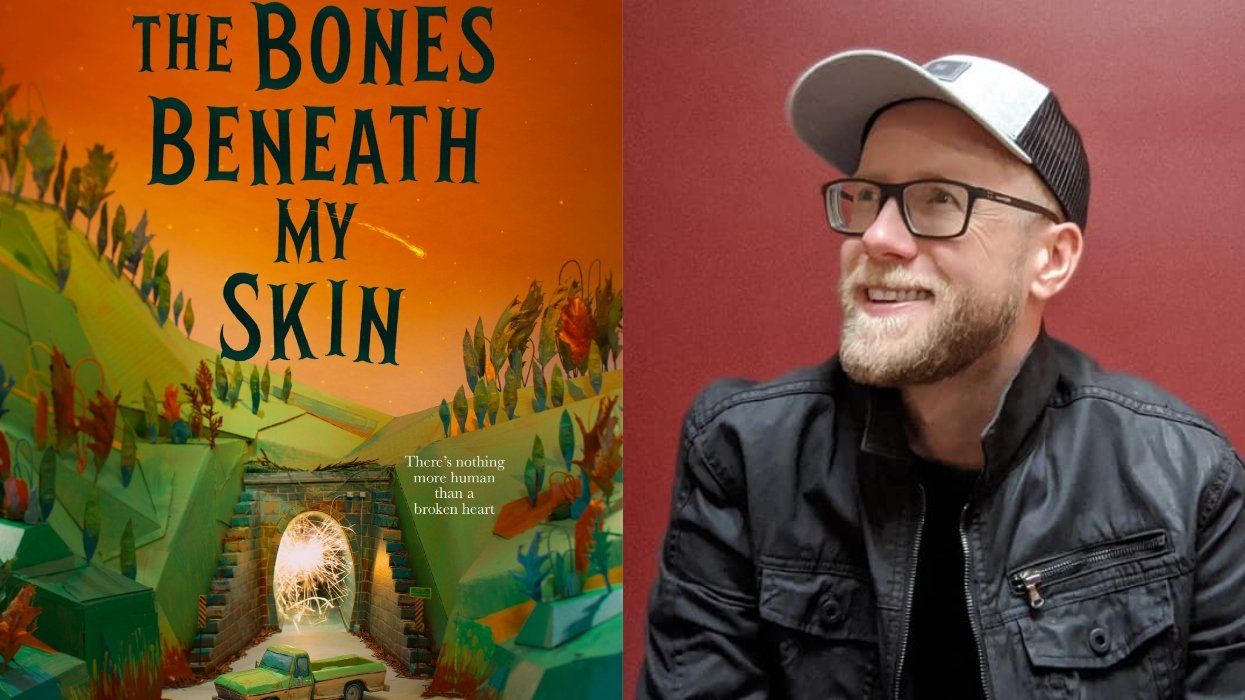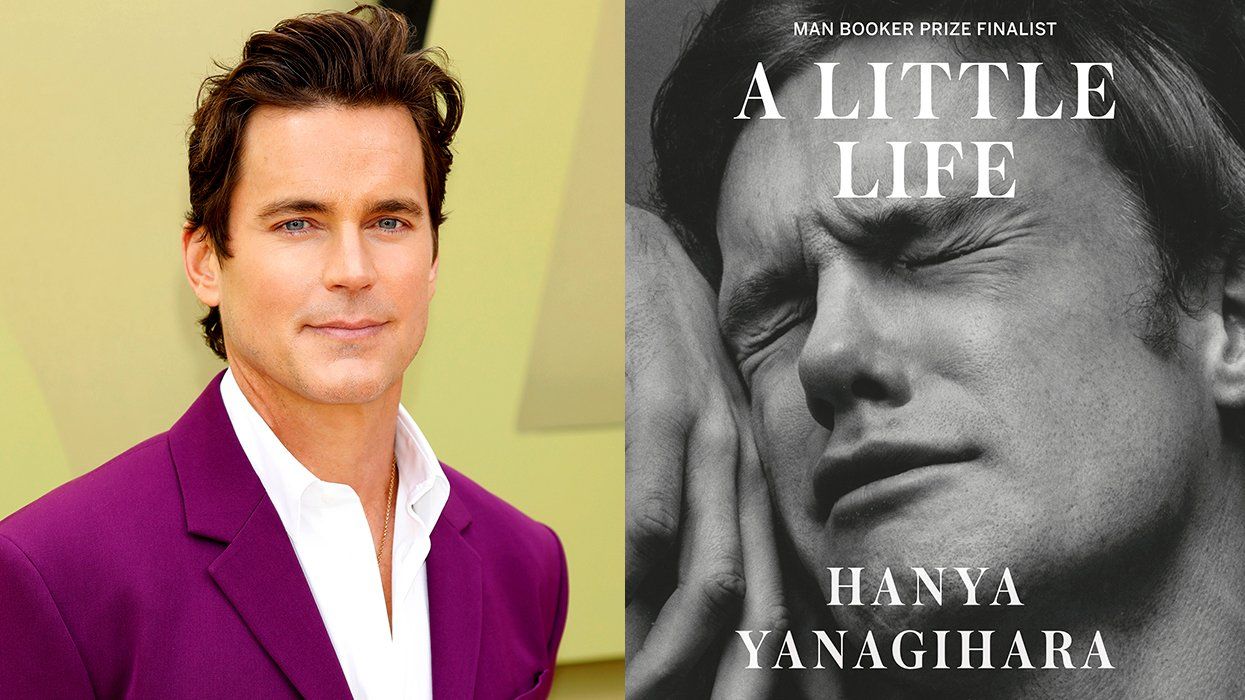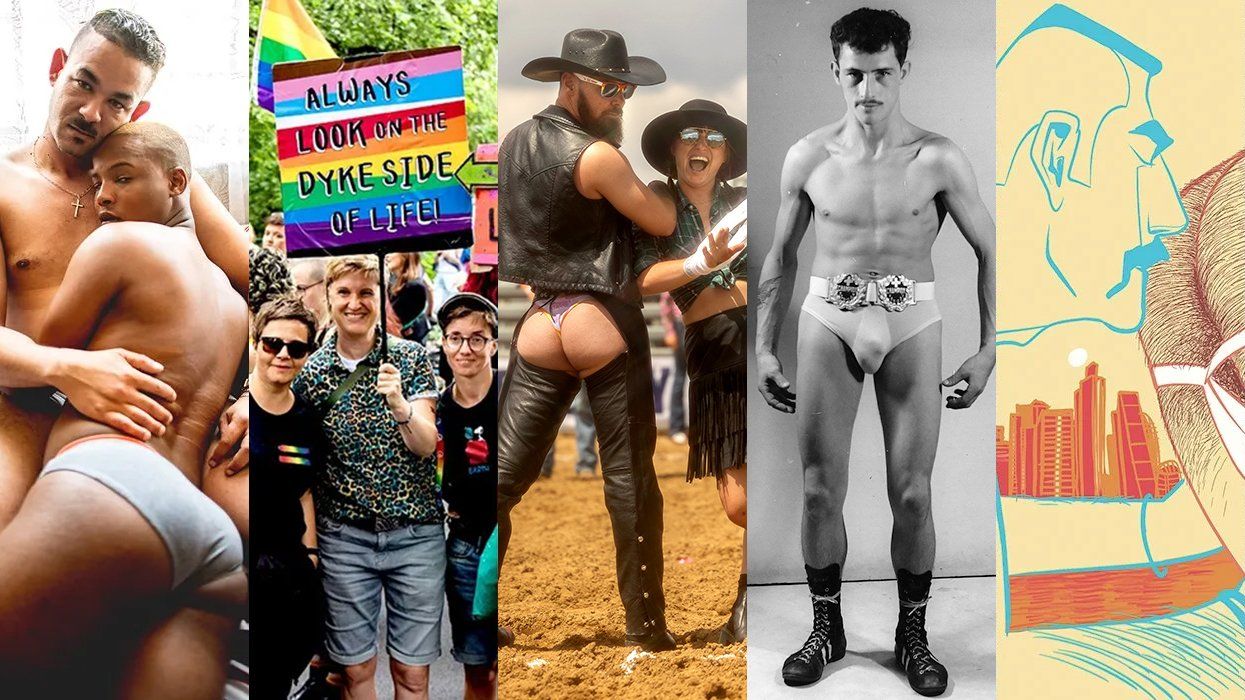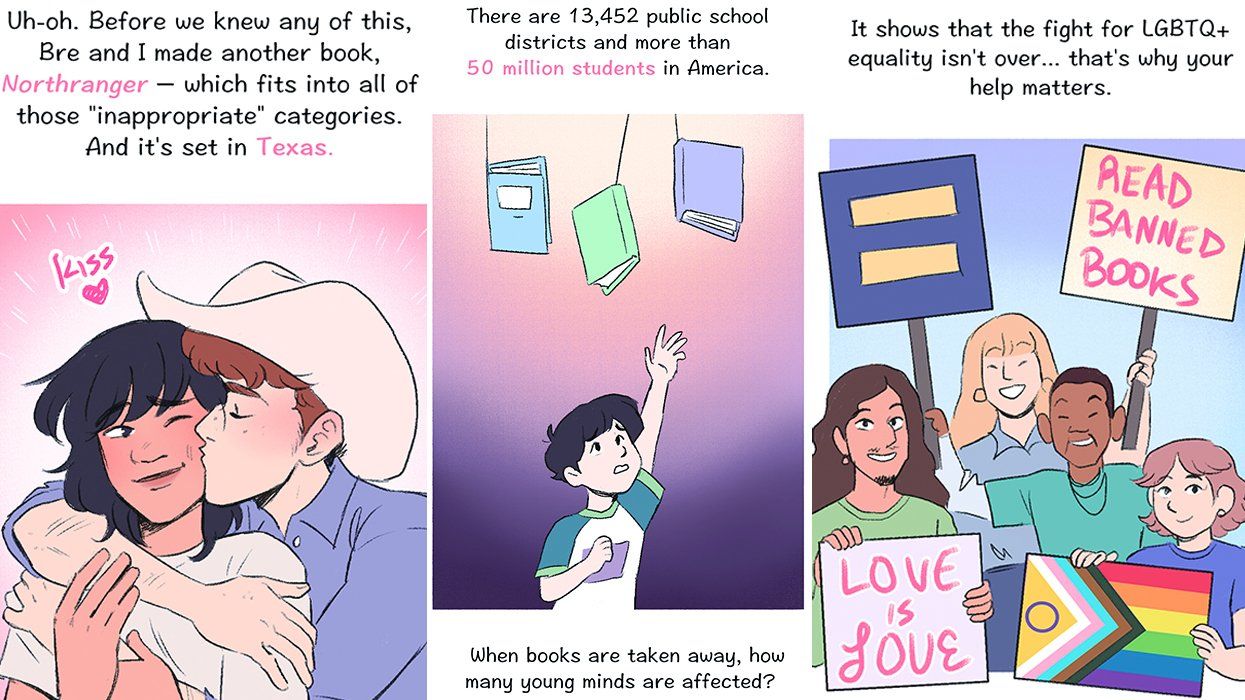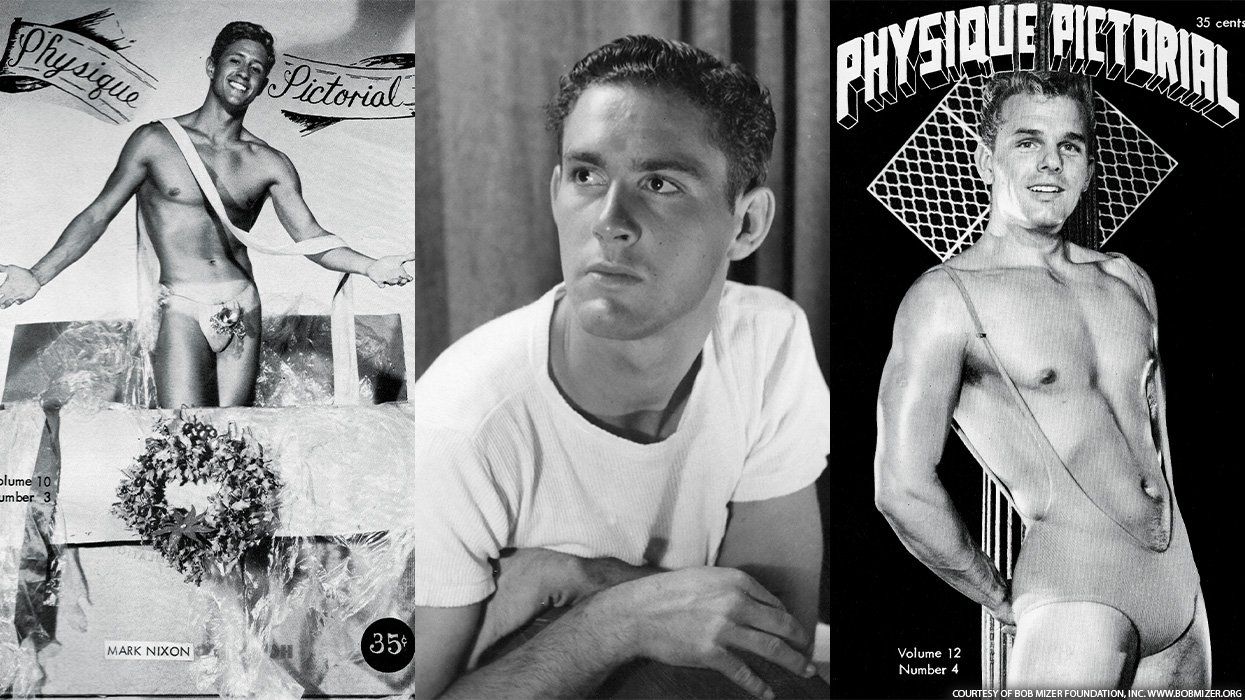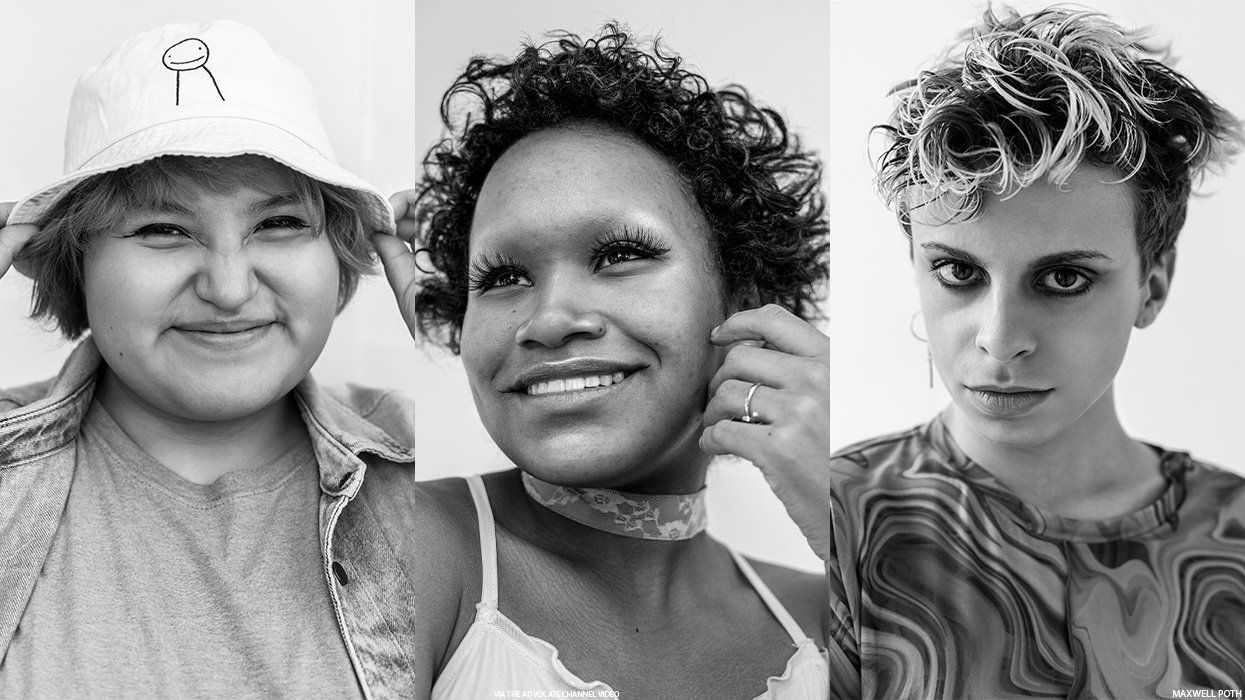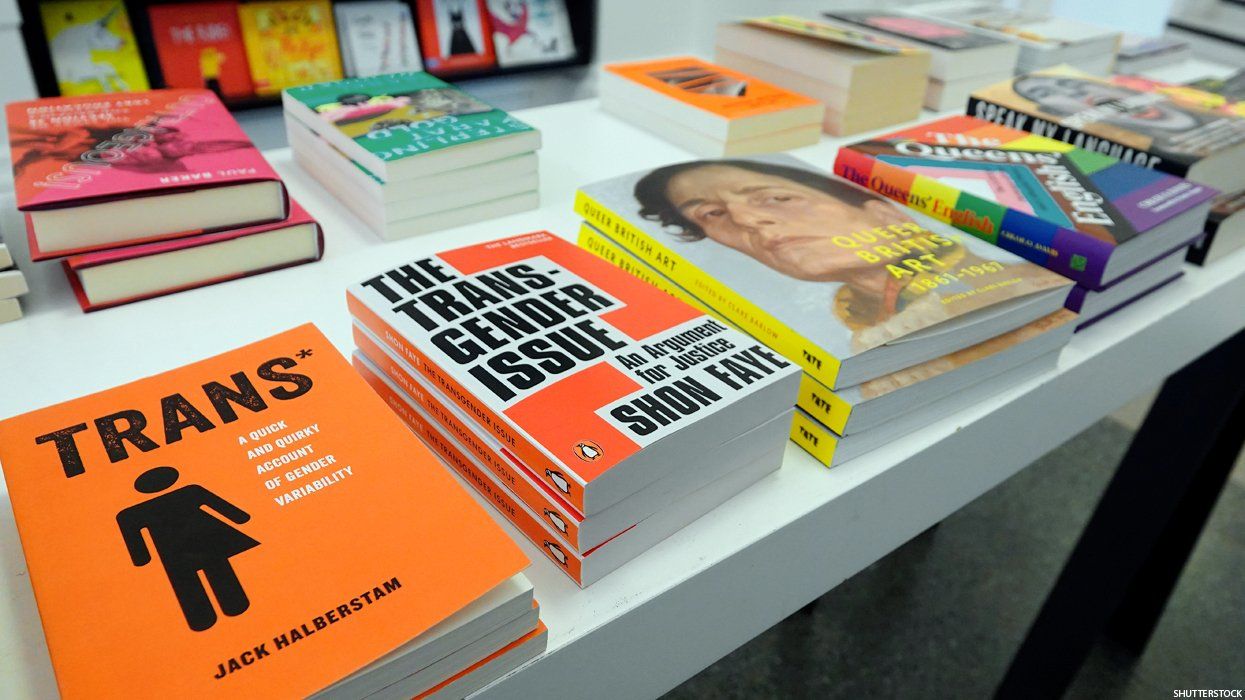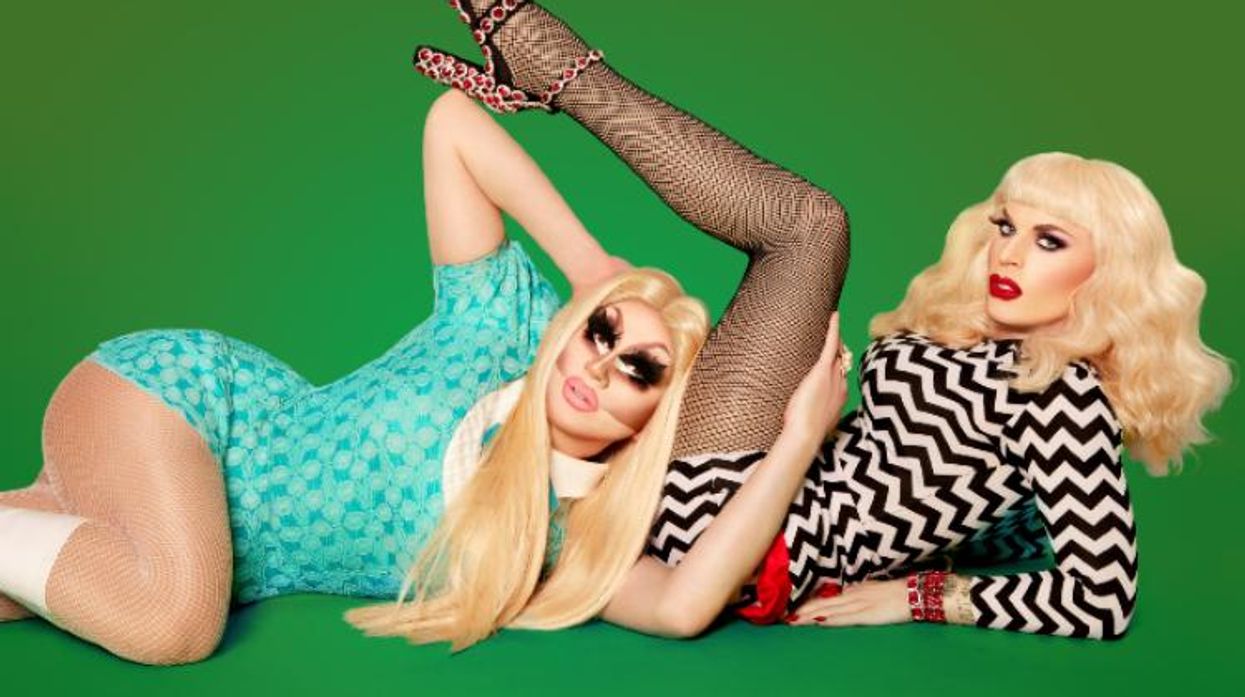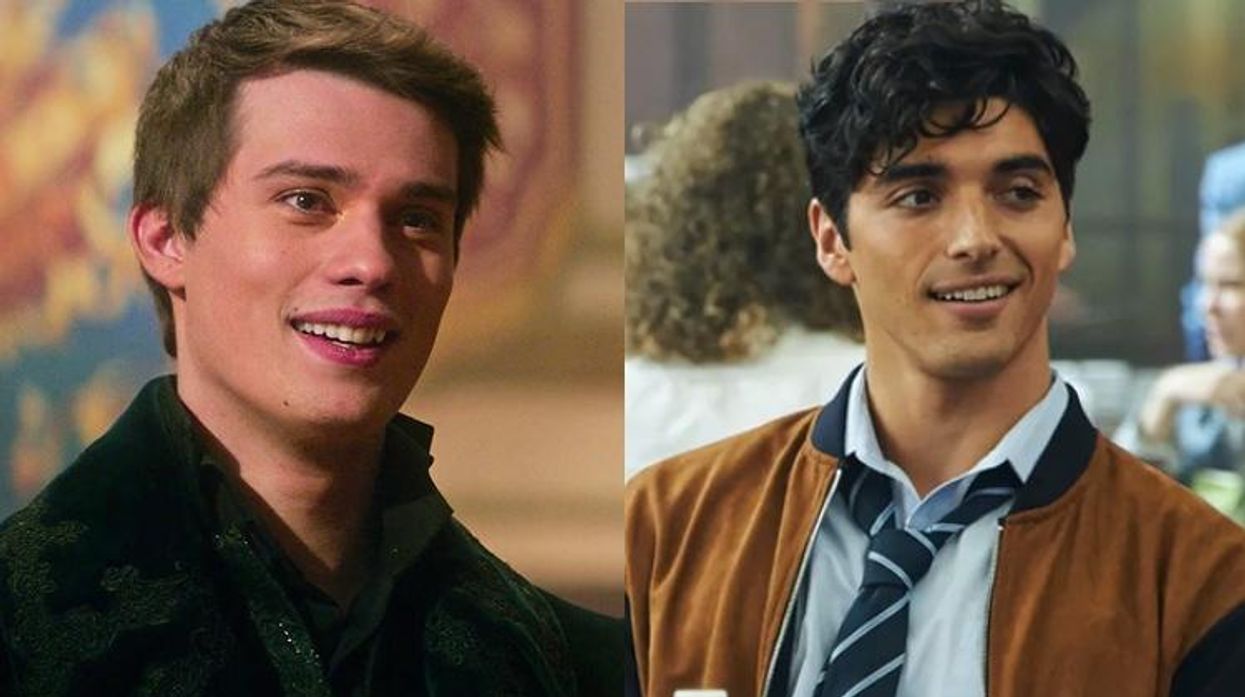Pictured: A detail of Harmony Hammond, "A Queer Reader," 2010, Archival inkjet print on Museo Silver rag paper, mounted on Di-Bond with UV laminate, 43 x 29 in. Courtesy of the artist.
Sexuality has been, and continues to be, used as a tool to prohibit queer creativity. The new exhibit at the Leslie-Lohman Museum of Gay and Lesbian Art, curated by Jennifer Tyburczy, Irreverent: A Celebration of Censorship, includes work spanning three decades that has been censored, and in some cases vandalized.
Kent Monkman, "Duel After the Masquerade," 2007, acrylic on canvas, 20 x 30 in. Collection of Jennifer Dattels.
"The focus of this exhibition will be the work which has been excluded from other mainstream institutions due to its gay content," museum director Hunter O'Hanian says. "Going back to the 'Culture Wars' of the 1980s, the exhibition landscape has changed as certain works of art have been excluded because they were considered 'offensive' or 'too risky.' While in some ways we live in a time which appears more tolerant, exclusion of artwork, and certain facts about some artists, are still excluded because of the person's sexual orientation."
Jennifer Tyburczy, the guest curator of the exhibit explains, the exhibition draws inspiration from the innovative responses to watershed moments in the history of censoring LGBTQ art in Canada, England, Ireland, the Netherlands, South Africa, Sweden, Turkey, and the United States. "In concept, the show is principally drawn from two events: the censorship of Robert Mapplethorpe's art in the 1980s and 1990s and the more recent withdrawal of David Wojnarowicz's 'A Fire in My Belly' (pictured above) from the National Portrait Gallery in 2010," she says. "In practice, it seizes on the international fame of these controversies to delve deeper into the many ways that censorship functions in queer artistic life."
Irreverent: A Celebration of Censorship, Feb. 13-May 3, at the Leslie-Lohman Museum of Gay and Lesbian Art, NYC.
See more work below: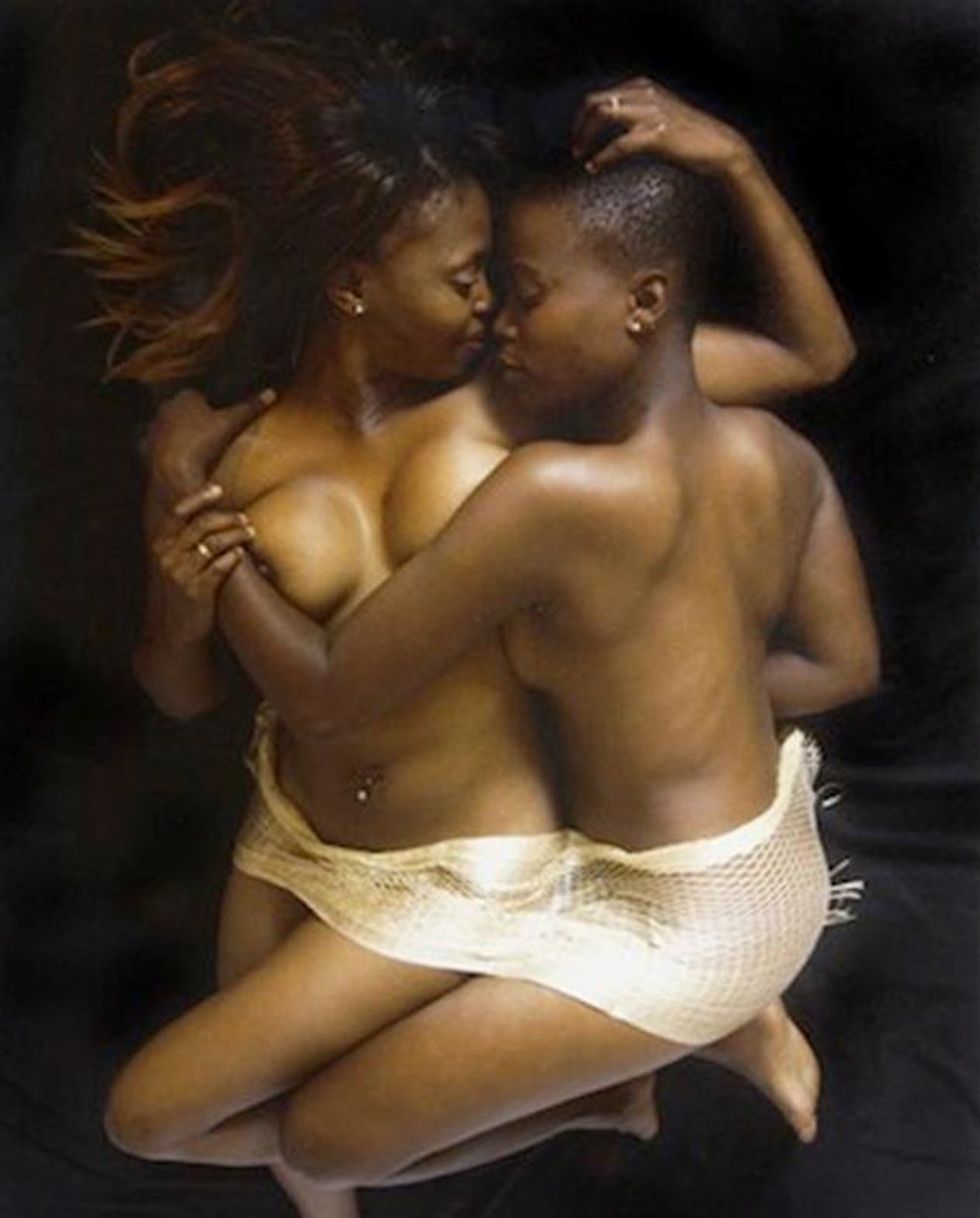
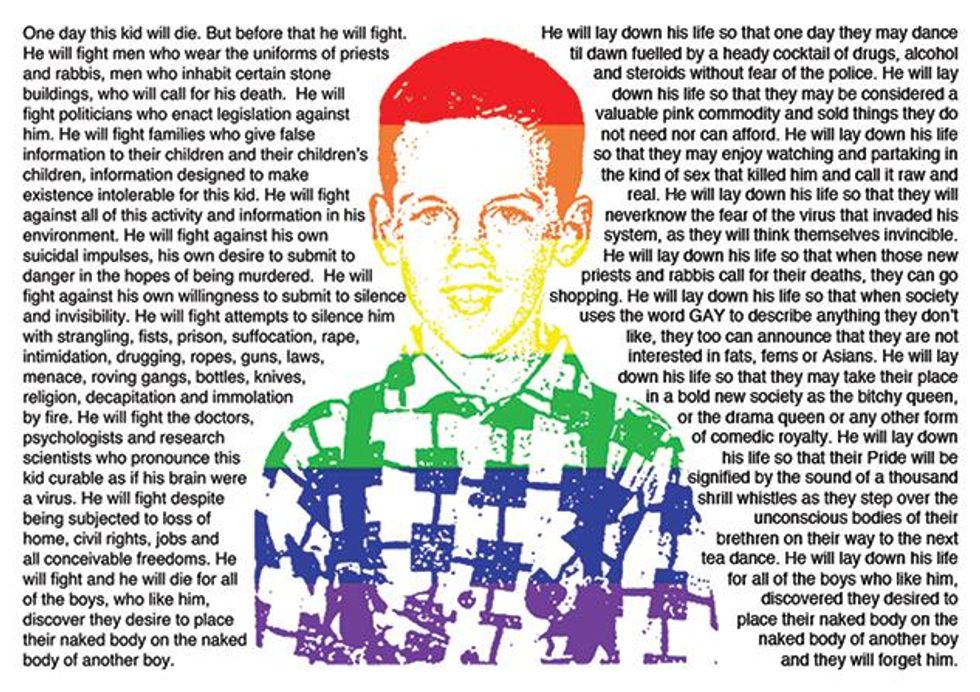
In 2010 curators and volunteers at the GFest, London's Queer Arts Festival, were ordered to cover up some of the works with masking tape and tarps. Of these artworks, Irreverent will display Corrine Bot's Jack & Jill 01-03, Kimi Tayler's The Stags in Drag (THE NATURE OF BEAUTY), and Jason Woodson's tribute to David Wojnarowicz's One Day This Kid (20 Years On).

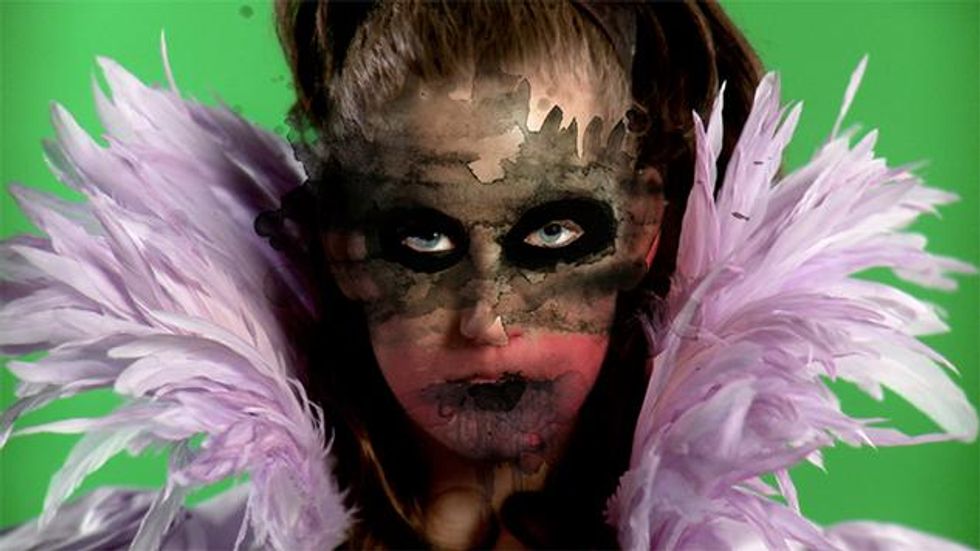
The censorship of Michelle Handelman's video installation "Dorian: A Cinematic Perfume" is a classic example of the moral panic that can ensue when queer art is shown in mainstream museums. After the video was originally shown as one part of a larger exhibition at Austin's Art House in 2011, Dorian was shut down for certain periods of time without explanation. Following this, the looped video was then presented with only limited screening times before being removed altogether. These decisions were precipitated by one particularly powerful board member who was personally offended by the film's content. 